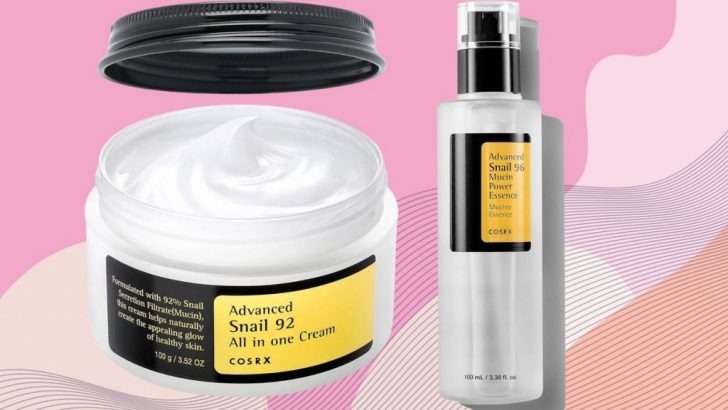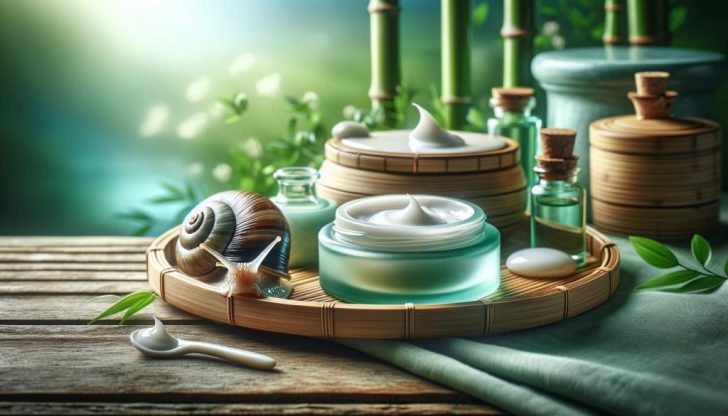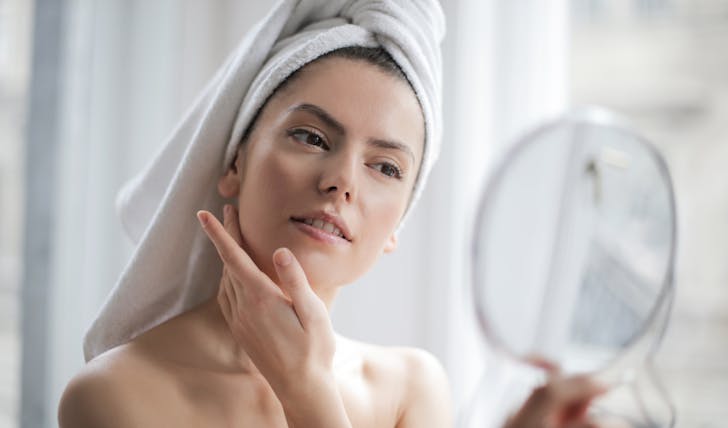
Why Snail Mucin Is Becoming A Viral Skincare Phenomenon AGAIN

As intriguing as it sounds, Snail skincare has garnered a following for its supposed benefits in rejuvenating and healing the skin. But amidst the buzz and the trend-setting hashtags, one does wonder if snail skincare really works.
Long before snail skincare took over Instagram feeds and beauty blogs, it had been a secret ingredient in the wellness routines of many cultures. The use of snail mucus for skin benefits can be traced back to ancient Greece, where it was applied for its anti-inflammatory properties.

Health News / Before the rise of social media, snail mucin was widely used to repair damaged skin in ancient Greece.
Fast forward to the 1980s, when Chilean farmers harvesting snails for the French culinary market discovered the accidental skincare benefits of snail mucus, including softer hands and accelerated healing of cuts. This discovery led to the popularization of snail mucus in beauty products across South America, laying the groundwork for the global phenomenon it has become today.
In 2022, the snail skincare market was valued at an impressive $555 million globally, with North America emerging as the fastest-growing market. This boom in popularity can be largely attributed to the explosion of K-beauty trends worldwide, with South Korea pioneering the snail mucus skincare movement.
What Does Snail Mucus Do?
Snail mucus, also known as snail secretion filtrate, is packed with a cocktail of beneficial ingredients for the skin. It is rich in hyaluronic acid, glycoprotein enzymes, antimicrobial and copper peptides, and proteoglycans.

FrontStory / Since it is rich in hyaluronic acid, Snail mucin helps treat damaged skin.
These components contribute to its moisturizing, anti-aging, and healing properties. Snail mucus is commonly found in a variety of skincare products, from serums and creams to masks and more, each promising to deliver smoother, more radiant skin.
The Science Behind Snail Skincare
The science supporting snail skincare’s effectiveness is based on its unique composition. Hyaluronic acid, a key component of snail mucus, is a powerful humectant that helps retain moisture in the skin, leading to hydration and plumping effects. The antimicrobial properties of snail mucus can help cleanse the skin and reduce the likelihood of acne.
Plus, peptides found in snail mucus promote collagen production, which is essential for skin elasticity and can help reduce the appearance of wrinkles and fine lines.
Does Snail Skincare Really Work?
Given its composition, snail mucus does have a basis for its skincare claims, particularly in hydration, anti-aging, and repair. Many users report noticeable improvements in their skin’s texture, appearance, and overall health after incorporating snail mucus products into their routines.

Andrea / Pexels / Snail skincare has turned out to be an elixir for hydration, skin repair, and anti-aging for centuries.
However, it is important to note that individual results can vary based on skin type, existing conditions, and how the snail mucus is formulated within products.
Snail Mucus for Skin Repair
Beyond its cosmetic applications, snail mucus has shown promise in more medicinal contexts, particularly in healing and repairing damaged skin. Its regenerative properties have been noted in studies and anecdotal evidence, suggesting potential uses in treating scars, cuts, and burns. This aspect of snail mucus goes beyond superficial beauty benefits. It taps into a deeper level of skincare that aligns with its historical uses for skin health and recovery.
So, as snail skincare continues to captivate the beauty industry, it is essential for consumers to approach this trend with mindfulness. Sure! The benefits of snail mucus are backed by both history and science. Butt is crucial to source products from reputable brands that ensure ethical treatment of snails and quality extraction of mucus.
More inBeauty & Cosmetics
-
`
Princess Charlotte Steps Up with a Royal Reminder for Prince George
Princess Charlotte continues to captivate royal watchers with her poised demeanor and sense of responsibility. At just nine years old, she...
November 29, 2024 -
`
Deal With Lower Back Pain With These Yoga for Sciatica Exercises
Lower back pain can disrupt daily life, especially when caused by sciatica. This condition occurs when the sacral nerve, located at...
November 29, 2024 -
`
8 Expert Tips for Staying Healthy in the Winter
Staying healthy in the winter requires a proactive approach, as cold weather can challenge immune strength and mental well-being. With a...
November 21, 2024 -
`
Concussion in Children: What Parents Need to Know for Safe Recovery
A concussion in children, especially from contact sports, requires careful attention to symptoms and recovery. A concussion, or mild traumatic brain...
November 15, 2024 -
`
Can Hypochlorous Acid Transform Your Skin Routine and Banish Acne?
Hypochlorous acid is rapidly gaining attention in the skincare world thanks to its potential to fight acne and support clear skin....
November 8, 2024 -
`
How Calisthenics Can Help Improve Your Overall Fitness?
Calisthenics is not a mere workout. It is a fitness revolution. Unlike weightlifting or running, calisthenics uses only your body weight...
November 2, 2024 -
`
10 Must-Have Foods for Kidney Health You Need in Your Diet
Our kidneys are powerhouse organs, working constantly to remove waste, balance fluids, and regulate essential minerals like sodium and potassium. These...
October 26, 2024 -
`
The Les Mills Fitness Festival in Riyadh | An Immersive Fitness Experience
The Les Mills Fitness Festival is coming to Riyadh. It is set to be a fitness experience like no other! On...
October 19, 2024 -
`
How Healthy Are Oats Actually? A Closer Look
Oats have become a staple in many breakfast bowls and snack bars. But are oats healthy? The short answer is yes!...
October 11, 2024















You must be logged in to post a comment Login